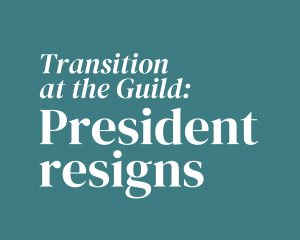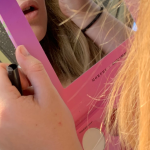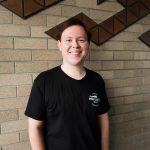By Liam Blair
The QUT Guild student council lacks any disability representation, despite it being an extremely common role in student unions across the country.
According to Times Higher Education, all 9 Australian universities in the global top 200 have an abilities officer, most also specifying their additional advocacy for students with mental health conditions.
During last year’s Guild elections, the current Reach administration advocated for the implementation of the role and a collective in the announcement of the policy on their Facebook page.
“Our plan is to introduce an Abilities Collective, guided by an elected Abilities Officer…given full autonomy and independence, who are able to instruct us on the best ways the student union can be fighting for their rights,” the post said.
The post also explained that their Presidential candidate Vinnie Batten and Creative Industries Officer Will Kroger both live with a disability, and said they have experienced how previous administrations have been “silent on issues surrounding disability.”
Batten, now the Guild President, is “currently workshopping a structure that gives the community long-term sustainability and autonomy so we, as the Guild, can be directed on how to support these students, not the other way around.”
Kroger, who was re-elected to the role of CI Officer last year, believes QUT is “far behind” other universities and that changes need to also happen at higher levels of government to improve social equality for everyone.
Previous student executive, EPIC, did not respond to requests for comment.
The University of Queensland, which is ranked 4th in Australia and 69th globally, has two Abilities Officers and an Abilities Collective, which runs events for the community and allows direct communication between students living with a disability and their representatives in their student union.
One of the two UQ Abilities Officers Finnian Sonter said he knows there are disabled students at QUT who are frustrated with the absence of representation in their Guild and are feeling a lack of community at their own university.
“Having an Abilities Officer gives students a peer who can be their point of contact to find out more about what supports are available to them from the collective, university and external organisations,” he said.
“A collective, rather than just officers, gives disabled students the opportunity to build lasting relationships with peers who have similar lived experiences,” he continued.
Sonter also pointed out that abled staff in charge of disability advocacy “don’t realise how small, simple adjustments can increase accessibility [and that] it’s not their fault, it’s just something they’ve never had to think about as someone without disabilities.”
Outgoing 2018 University of Sydney Disabilities officer Robin Eames also believes it is important that disabled students and staff have representation at university.
In a post to their blog, Eames states that in their opinion, the labelling of disabled spaces as “abled” is misleading to who the space is for, and that using wording such as “dis/abled” or “disABLED” is more confusing for disabled people with reading difficulties.
The University of Sydney’s student magazine Honi Soit released a disability focused issue last September called Disabled Honi, edited and written by the university’s Disabilities Collective.
For immediate issues, please contact the QUT Disability Services or the Student Rights Hub student.disability@qut.edu.au | GP: 3138 2699 KG: 3138 5601
Student Rights VPs
3138 3706
studentrights@qutguild.com
Students Rights Hub
1800 946462
advocacy@qutguild.com







